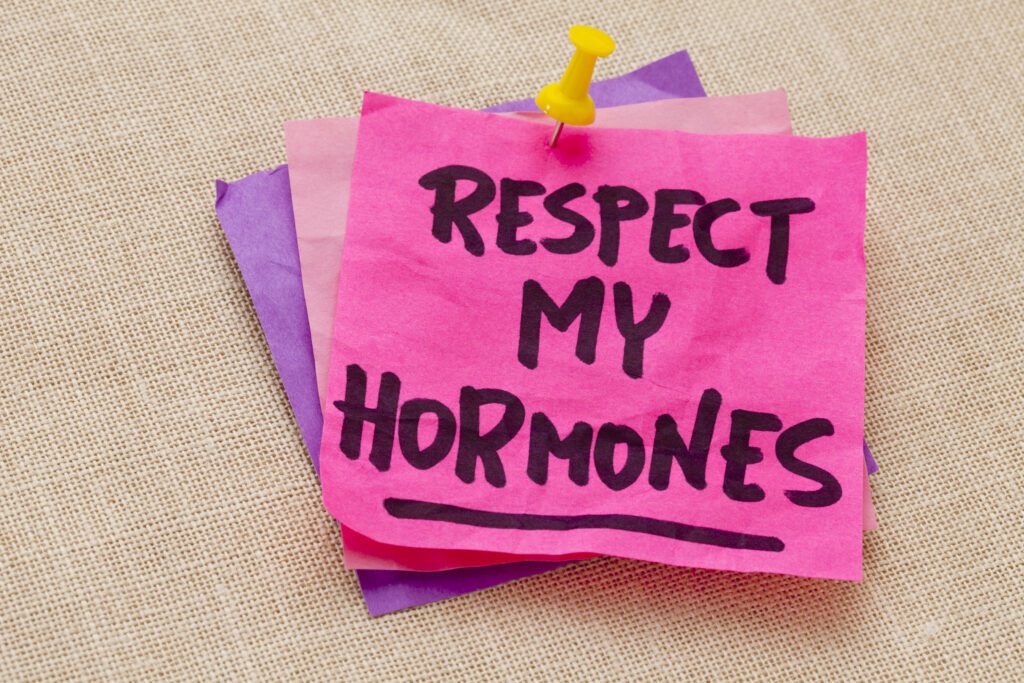Menopause: Hot and Bothered!
Dealing with the change. Hormones! Hot Flashes! Help! Can you relate?

Dealing with the change. Hormones! Hot Flashes! Help! Can you relate?

Defining and Understanding Menopause. Hormones! Hot Flashes! Help! Can you relate? Let me start by saying, “Women! We are on fire!” Most of my girlfriends are either entering menopause or settling into this new way of life in their bodies. We have heard about night sweats and maybe even have memories of a female loved one spouting a spontaneous facial waterfall, but until we experience it for ourselves it’s impossible to truly relate.
With Mother’s Day approaching, it’s a great time to tackle the topic of women’s health and hormones. As usual, I plan to keep it real and focus on the best approach to handling menopause symptoms so we can get on with it, whatever “it” may be for you.
Being a freak about health and always on a need to know basis, I aim to uncover the details of this “normal” aging process. As a health educator, it’s essential for me to not only understand menopause, but to also point my clients and readers in the best direction of menopause management. As a women in my 50’s, I strive to survive this phase, without hurting a loved one or blowing all of my money buying personal fans to stay cool. Wishing our bodies would cooperate exactly as we command them to is clearly not reality, so let’s dive into the deep end of this important women’s health topic and focus on what we actually have control over.
While menopause is a natural process that is defined as the end of a woman’s menstrual cycle, typically marked by 12 months with no period, it brings on a whole host of symptoms that certainly feel anything but natural. The most common experiences include hot flashes, night sweats, fuzzy brain (yes, that’s a medical-ish term), weight changes, moody as hell, and decreased desire for sex, serving others, and simple conversations. You feel me right?

There is so much to write about on this subject and for that I need to start a book. Hmmm, this just might happen. For now, the goal is for us to get straight to the point of how to manage each symptom, so in this post let’s take a look at the most common concerns and potential strategies to lessen our lash outs and increase likeability.
Hot Flashes & Night Sweats: The number one reported symptom. They are in fact a bit different. Hot flashes can occur any time of day, while night sweats leave us throwing off covers and clothes in the middle of the night.
Mood Swings: We like to think menopause is the only reason for these, but as women we’ve been prone to mood swings our entire tenure of hormone induced living. Basically forever. Menopause is surely responsible for heightened moodiness and sometimes it’s simply because we are freakin’ hot. It is essential, however, to recognize the difference between a temporary bad mood and a more significant shift into depression. Hormones are shifty critters and when they are out of sorts, our outlook on life can change significantly.
Fuzzy Brain: Why can’t I think straight? It’s a real issue. Our hormones are playing with our heads, literally. Most research explains memory changes during menopause are due to a drop in estrogen, but some experts also believe lack of sleep, stress, and those joyful hot flashes play a role as well.
Weight Gain: Put on a few pounds in your back, boobs & booty? Yup. Often weight gain or the inability to take weight off is the first clue we have entered perimenopause. The challenge we also face is that with hormone shifts, we may desire comfort foods over more nutritious choices, which complicates the entire eat well/feel well/fit into our clothes well equation.

At the end of every day, we want to feel that we accomplished “enough” without being physically and emotionally exhausted.